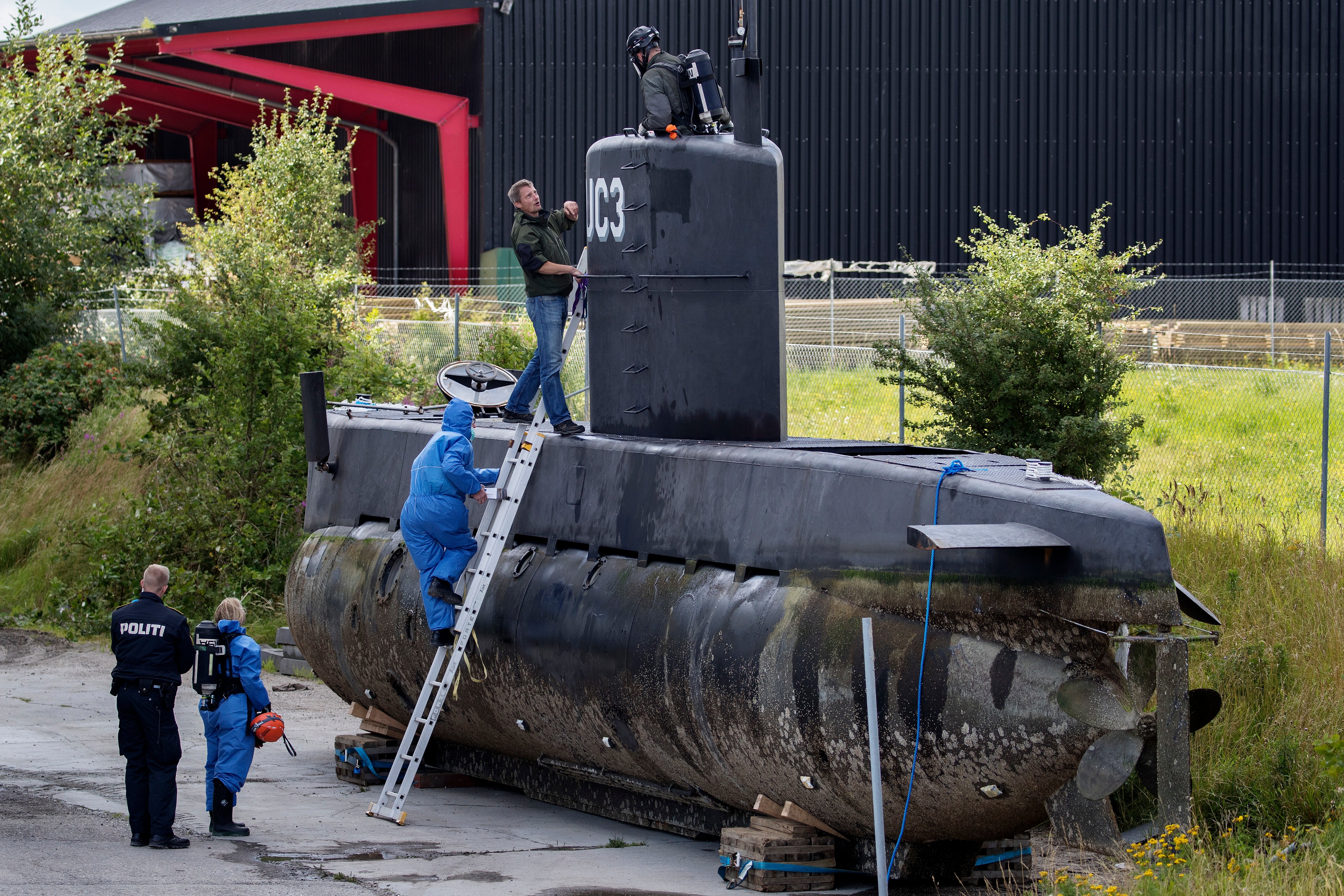Human rights of Danish sub killer were not violated when prison banned letters, visits, court says
A Danish court has ruled that the human rights of a Danish man who was convicted of murdering a Swedish journalist on his homemade submarine were not violated as he had claimed

Your support helps us to tell the story
From reproductive rights to climate change to Big Tech, The Independent is on the ground when the story is developing. Whether it's investigating the financials of Elon Musk's pro-Trump PAC or producing our latest documentary, 'The A Word', which shines a light on the American women fighting for reproductive rights, we know how important it is to parse out the facts from the messaging.
At such a critical moment in US history, we need reporters on the ground. Your donation allows us to keep sending journalists to speak to both sides of the story.
The Independent is trusted by Americans across the entire political spectrum. And unlike many other quality news outlets, we choose not to lock Americans out of our reporting and analysis with paywalls. We believe quality journalism should be available to everyone, paid for by those who can afford it.
Your support makes all the difference.The human rights of a self-taught Danish engineer who was convicted five years ago of murdering a Swedish journalist on his homemade submarine, were not violated as he had claimed, a Danish court ruled Thursday.
Peter Madsen was sentenced to life in prison in 2018 for killing Kim Wall, a 30-year-old freelance reporter, after bringing her aboard his self-built submarine with the promise of an interview. There he tortured and killed her before dismembering her body and dumped it at sea in a case that gripped Scandinavia.
Madsen had sued the southern Denmark prison where he is incarcerated over a ban on getting visits, exchanging letters and making telephone calls without permission. In its ruling, the district court in Nykoebing Falster said that the ban was not a breach of the European Convention on Human Rights.
However, the court said that Madsen may receive visits, phone calls and write letters with a vetted person but needs permission each time.
On Aug. 10, 2017, Wall boarded Madsen's 33-ton, nearly 18-meter-long (60-foot-long) UC3 Nautilus submarine in Copenhagen. Eleven days later, her dismembered torso was found at sea off Copenhagen. Other body parts, including the head, were found at sea months later.
Madsen had in the meantime been arrested and in January 2018, he was charged with murder, dismemberment and indecent handling of a corpse.
During the trial and subsequent appeal, which he also lost, Madsen was depicted as a tech nerd. A psychiatric report described him as “emotionally impaired with severe lack of empathy, anger and guilt” and having “psychopathic tendencies.”
An attempt to flee a suburban Copenhagen jail in October 2022, failed and he was recaptured nearby. He was transferred to another prison — the Storstroem prison — with higher security and sentenced to a year and nine months for the attempt. It was that prison that he sued.
The Ekstra Bladet newspaper reported that Madsen told the court that his attempt to flee was rooted in frustration that all contact with the outside world had been revoked.
Last year, a Danish law was changed barring people sentenced to life from receiving or making phone calls or letters, or receive visitors that they didn’t know before their incarceration during the first 10 years of their sentence. The law was amended because Madsen had several female visitors and got married in jail. They later reportedly divorced.